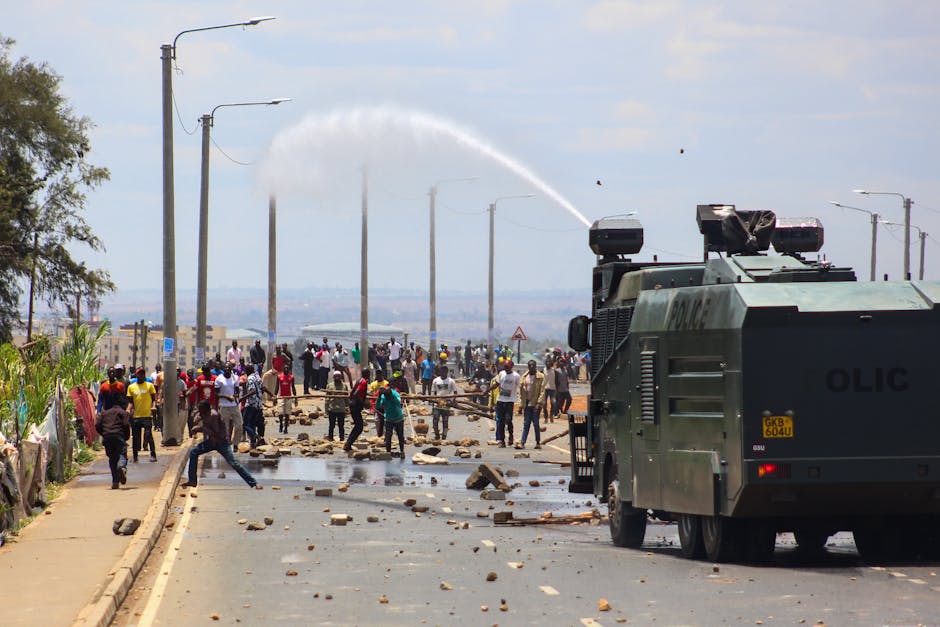Kenya Erupts: Deadly Clashes as Protesters Mark Anniversary of 2024 Uprising
Kenya Erupts: Deadly Clashes as Protesters Mark Anniversary of 2024 Uprising

Kenya has been plunged into renewed turmoil as anti-government protests, commemorating last year’s deadly demonstrations, turned violent, resulting in at least 16 fatalities. The clashes, primarily in the capital Nairobi and other major towns, saw thousands take to the streets, only to be met with a forceful police response.
The protests, marking a year since the dramatic storming of parliament over a controversial tax bill, quickly escalated. Amnesty Kenya’s executive director, Irungu Houghton, confirmed 16 deaths by early evening, with most attributed to police action, including at least five from gunshot wounds. The Kenya National Commission on Human Rights (KNCHR) corroborated the severity of the situation, reporting over 400 casualties among demonstrators, police, and journalists, and noting heavy police deployment with allegations of excessive force, including the use of rubber bullets, live ammunition, and water cannons.
Hospitals bore the brunt of the violence. Kenyatta National Hospital in Nairobi alone admitted 107 wounded individuals, many suffering from gunshot injuries. The unrest also claimed the life of a security guard patrolling the headquarters of national electricity provider Kenya Power.
Scenes broadcast by local channels NTV and KTN showed large crowds attempting to march towards State House, the president’s official residence, before both broadcasters were temporarily pulled off air for defying an order to cease live coverage. They later resumed broadcasts after a court intervened.
Beyond Nairobi, isolated clashes were reported in the port city of Mombasa, as well as in Kitengela, Kisii, Matuu, and Nyeri, indicating the widespread nature of the discontent. The current wave of protests is fueled not only by the memory of last year’s events, which saw over 60 deaths, but also by persistent public anger over alleged excessive force by security agencies and, more recently, the death of 31-year-old blogger and teacher Albert Ojwang in police custody. Ojwang’s death has become a rallying cry for justice, with six individuals, including three police officers, recently charged with his murder.
As the nation grapples with the aftermath of these violent commemorations, the underlying issues of police accountability and public grievances against the government remain at the forefront, signaling a deeply fractured political landscape.
Disclaimer: This content is aggregated from public sources online. Please verify information independently. If you believe your rights have been infringed, contact us for removal.